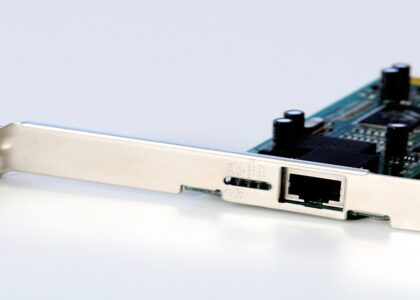In modern times, there are several technologies and inventions that have successfully made our lives easier and one such technology is OCR AI. OCR is the acronym for Optical Character Recognition and it is a type of technology through which you can conveniently discover and pull out text from physical documents, images, etc.
Whenever you deal with an image you cannot count, edit, or search for specific numbers, characters, or words available in the same. However, the OCR AI has enabled people to directly transform images into a text document format while all the contents available in the image file will be turned into readable and editable data.
Importance of OCR AI
The majority of corporate operations include information gathering from images, print media, etc. Due to the extensive digitisation business procedures include the use of scanned legal documents, printed contracts, paper forms, invoicing, etc. However, for the employees of the company, it is extremely difficult to handle so much paperwork and a significant amount of their time is wasted on the same.
More importantly, it also requires a significant amount of storage space in order to manage all of the documents. Even though companies can certainly opt for paperless document management, scanning each and every piece of document is undoubtedly slow and tiresome work.
OCR AI is the solution to all the above-mentioned issues. By transforming text photos into textual information and documents, companies can easily search, evaluate and store these documents without going through any kind of manual labor. It would become extremely easy for the company to automate their operations, conduct proper analytics and boost the overall efficiency and productivity of the company.
Applications of OCR AI in different industries
Some common OCR AI uses in various industries are as follows:
Healthcare
OCR AI has been able to immensely improve the documentation and data storing process in the medical and healthcare industry. With the help of OCR AI hospitals are not only able to process patient information, including examinations conducted, records of procedures, the number of hospital stays, and previous medical history faster it can also help in quick insurance payments. Overall it can reduce the manual labor the hospital staff have to go through in order to manage and maintain the preciseness of the patient records and information.
Financial industry
OCR AI has a big impact on the overall finance industry. Financial institutions such as banks frequently make use of OCR AI technology due to the sheer volume of paperwork they have to handle on a daily basis. Furthermore, for BPA or Business Process Automation systems OCR AI is the most ideal technology because it can help you handle customer data processing in a very efficient and convenient manner.
Any bank can quickly streamline its methods through the help of precise data extraction from physical documents. More importantly, ATMs also make use of OCR AI technology in order to interpret and identify the ATM, debit and credit cards issued by the banks. In the case of processing handwritten cheques, bank employees don’t need to manually enter all the details and instead by scanning the cheque you can transform and retrieve all the associated data on the paper.
Travel
With the help of fast travel paperwork processing and passport checking, OCR AI can make it extremely easy and convenient for you to travel while offering enough information to the authorities for security and safety purposes. You also won’t have to worry about any manual mistakes while verifying the data. Without a doubt, OCR AI can potentially boost the efficiency of the travel industry while providing a profound travel experience to customers.
Final words
OCR AI has the ability to bring drastic changes in a company or industry simply by automating the process of document collection and transformation. OCR AI technology is unquestionably considered a reliable and helpful tool for enterprises and organizations who frequently engage with big volumes of digital data and want rapid responses to continue their work.






